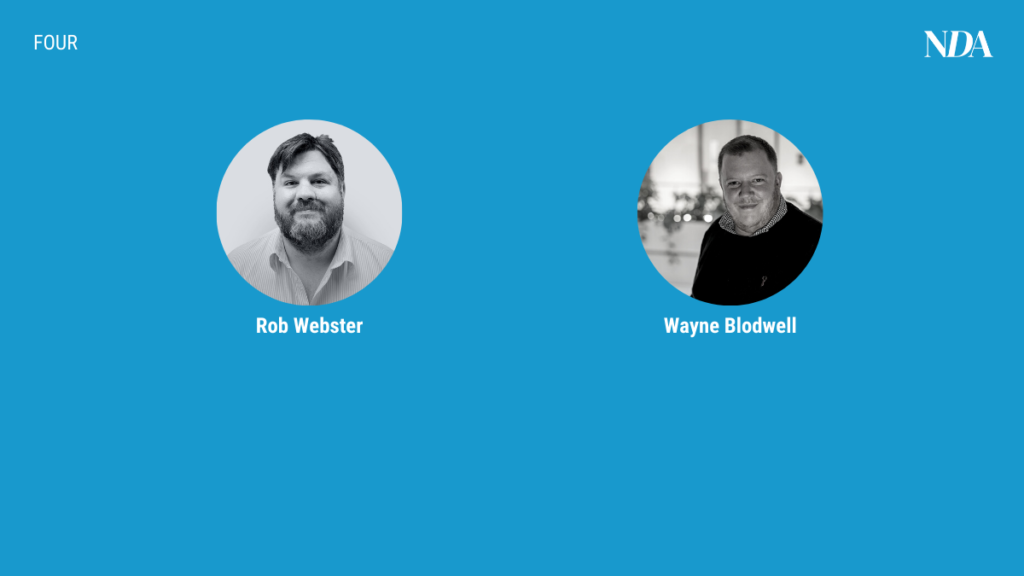Robert Webster, Founder, Canton Marketing Solutions and Wayne Blodwell, Founder & CEO at The Programmatic Advisory, In a special series of deep-dive articles, defend their positions on walled gardens.
Following the first article here, second article here and the third article here, Wayne ends the debate with his final position on walled gardens.
Walled gardens are better for the service layer
Agencies have armies of good people, many are excellent at operating platforms. Agencies arer incentivized to have as many walled gardens as possible, because that’s difficult for brands to manage in-house and they can add value on top of this through dashboarding, planning, tag management, supply optimization etc.
I think agencies are of the perspective that the walled garden ship has sailed or is certainly half way out to sea. They’re having to get into bed with some of these walled gardens, as they can offer scale and low-cost performance for their campaigns, which they are increasingly being tasked by clients to deliver on.
If you look at agency success stories in the past five years, they’re all the ones who have found ways to be ‘faster, better, cheaper’ on top of big walled garden relationships, they haven’t been the ones who have strategically moved brands away from walled gardens. Now, in many cases, they’re so tied into those relationships they couldn’t even move away even if they wanted to.
A double-edged sword for agencies with walled gardens; damned if they do, damned if they don’t.
Walled gardens are more consumer and privacy friendly
Walled gardens offer easier tools for users to understand and control what ads they do and don’t see. However, the internet isn’t comprised of just walled gardens. I truly believe that users need easier to use and consistent settings across the web. Third-party technologies (CMPs & even browsers) plus education, can help put the consumer first and make the internet more privacy friendly. Proposals such as ‘Privacy Budget’ in Privacy Sandbox are an interesting step here.
A good example of this in another industry is Open Banking in the UK finance industry. It was setup by the competition and markets authority to create innovative technologies and standards to allow for transparent and secure data sharing, so that users can operate their finances better, and SMEs were able to compete in a sector dominated by a handful of banks. Practically, this means the user can share information from one bank to another, to get mortgage quotes, credit card applications, even the ability to send money from one banking app to another, with only the need to login to the apps (no security codes/card readers etc.). This is an excellent example of data and technology benefiting industry, but also putting the user in control of their data.
Win, win.
Imagine that. I’m able to share years’ worth of banking details to other companies, but yet, some think I shouldn’t be allowed to share an ID to be targeted with an ad on the internet. At some point, if you take a step back, it becomes ridiculous the privacy smoke screen some companies hide behind.
Also, specifically, I wouldn’t write off RTB yet. Yes, sending a non-consented user ID in a bid request isn’t compliant but blaming RTB is like blaming the roads for car crashes. It’s how it’s used that’s important, and the protocol, like all good protocols, and the rules, like all good rules, will evolve. Long live RTB.
Walled gardens create a more sustainable internet
They don’t.
Sustainability is driven through competition and innovation – moving the industry forwards at all times. The richest companies in the world have huge walled garden ads businesses, but ads really are an extension of their ability to provide an audience at scale that they sell for low enough, whilst making their own margins, to back out to advertiser campaign goals.
There are very few companies who can do that, thus making the internet beholden to a handful of companies with vested interests – bleak.
The digital advertising future can be bright which is privacy led, open and connected. It is not one where there are only a handful of walled gardens in 10+ years’ time.
If that’s the place we end up in, then it’ll be a sad sad day for what was once a uniquely exciting industry.









